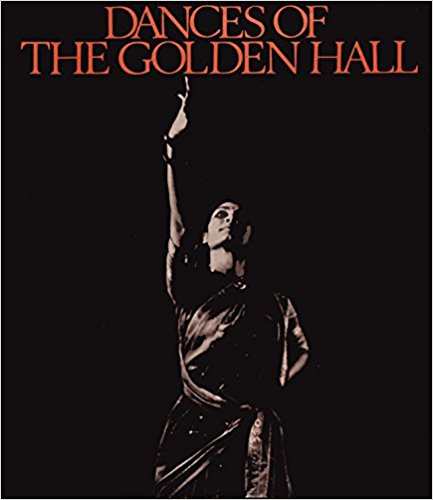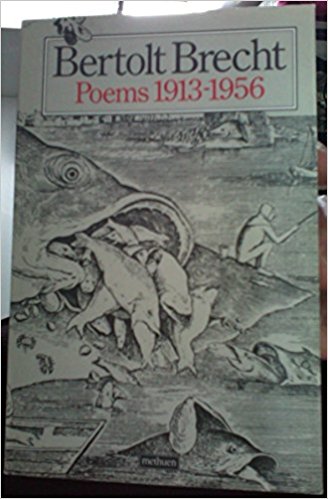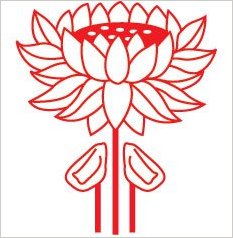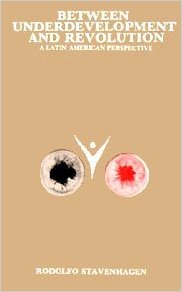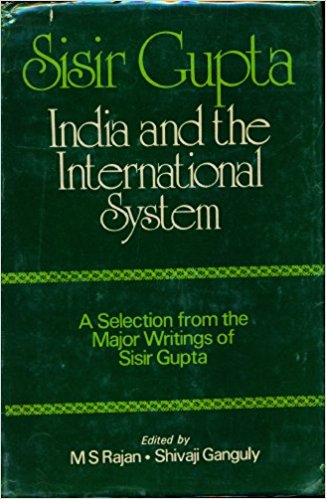One might be tempted to treat Dances of the Golden Hall as yet another coffee-table ‘glossy’ on the glories of Indian art, glance through the photographs and put it aside. This would be a mistake for this joint tribute by Ashoke Chatterjee and Sunil Janah to an illustrious dancer and her art is a work of ori¬ginality and brings something entirely new, surprising and refreshing into the world of art books.
Archives
Nov-Dec 1981 . VOLUME 6, NUMBER 3This volume of selected poems by Bertolt Brecht trans¬lated into English brings into focus an aspect of Brecht’s creative writing which for a long time was not given its due importance. Brecht has gained world-wide fame as a drama¬tist, as the innovator of the epic theatre and of the ‘alie¬nation technique’ (V-Effekt).
This book is a collection of four lectures delivered at the University of Rajasthan in 1972 in the newly, instituted lecture chair named after Dr. A.G. Stock. The first three lectures were originally deli¬vered in English, and the fourth in Hindi. A very brief fifth chapter, ‘Times Hunt’, a translated section from the Hindi book Samvatsara ap-pears at the end to exemplify and wind up the issue discus¬sed.
Foreigners’’ writings about India do not easily fall into set categories. Undoubtedly the openness and hospitality of Indians—the authorities as well as the common people— makes our country a happy hunting ground for those in search of experience. It seems a pity that the reportage-fiction genre of writing by foreigners absolves its prac¬titioners from the discipline of true literature—especially the great novel—through which the mind and the world-view of the writer communi¬cates to the reader its deep encounter with the ‘lived-in’ and ‘thought-of reality of the world.
Service memoirs, if well-written, are perennial draws. They bulge with ‘inside’ stories, they are written by men who have been at the top, privy to intrigue and decision, and they also seem to termi¬nate the service man’s code of silence. The memoirs often, contain analysis and opinion that comes easier with hind¬sight. There has, therefore, been a number of such memoirs recently, mostly writ¬ten by ex-Army men.
Marion Woolfson, a journalist, has ploughed through mountains of docu¬ments to show that Zionists will stoop to any depth in order to populate Eretz Israel, their land of destiny. They will kill, torture, lie, and bomb, as long as Jews flock to Israel. They will also spread misinformation, terro¬rize innocent civilians, alter facts of history and send letter bombs to blast scientists work¬ing for their enemies.
Basic to the concept of growing talent are the effec¬tiveness standards associated with every managerial job. Indeed, effectiveness is not a quality that a manager brings to a situation. It is something he produces from a given situation. What matters is not what a manager does but what he achieves. Interestingly enough, even if both input and output are low, a manager could easily be hundred per cent efficient but zero per cent effective.
Culture and Morality is a collection of essays written in honour of Christoph von Furer Haimendorf. Its arrival into the world of books should be sincerely welcomed by stu¬dents and scholars of anthro¬pology. The introduction gives us a detailed account of Haimendorf’s career and it includes references to his pub¬lished works. Contributors to this book have focussed on the theme of morality dealt with by Haimendorf in Morals and Merit (1967).
This study of religion and society in Thailand focusses on the Hindu cultural in-fluences that exist in Thailand. It is always interesting to see how the values, ideas and spirit of Indian society work after coming into contact with other cultures. Santosh Desai identifies and studies how the Indian values and customs have been transformed in their passage from one cultural region to another and how they have been assimilated into a different society.
The late Professor Moham¬mad Habib’s writings com¬prise all that was best in the work of a whole brilliant generation of Indian his¬torians. The thinking of this generation had been moulded by the concluding phase of India’s struggle for indepen¬dence—a phase that inspired a great deal of idealism, raised the moral stature of men and created fellow-feeling even in the midst of tensions and con¬flicts of truly continental dimensions. It is this essential humanism that makes many of the historical works of the late 1920’s down to the first decade of India’s independence valuable.
Except for some well-known concepts such as Gundar Frank’s development of under¬development the actual prob¬lems of development and poli¬tical change in Latin America are still relatively unfamiliar on this side of the world. For this reason the author’s stated aim of encouraging ‘scholarly South-South exchange’ is to be applauded as well as an Indian publisher’s willingness to assist.
W.W. Rostow identified the central fact about the eco¬nomy of a traditional society to be—
… that a ceiling existed on the level of attainable out¬put per head. This ceiling resulted from the fact that the potentialities which flow from modern science and technology were either not available or not regularly and systematically applied … But in agriculture, the level of productivity was limited by the inaccessibility of modern science, its appli¬cation, and its frame of mind.
During the past one decade or so there has been a drama¬tic shift in perceptions of deve¬lopment possibilities in nation¬al economies. Moved by the substantial deterioration in the living standards of the majo¬rity of the population despite improvements at a purely aggregate level, decision¬-makers, both at international and national forums, have started concentrating on change in the structure of the economy with a view to identi¬fying the potential beneficiar¬ies of alternative development scenarios.
M.S. Rajan and Shivaji Ganguly have done a com¬mendable labour of love in bringing together writings of Sisir Gupta on wide and vari¬ed aspects of international relations in contemporary times. The volume is dedicat¬ed to the memory of Professor Sisir Gupta.

